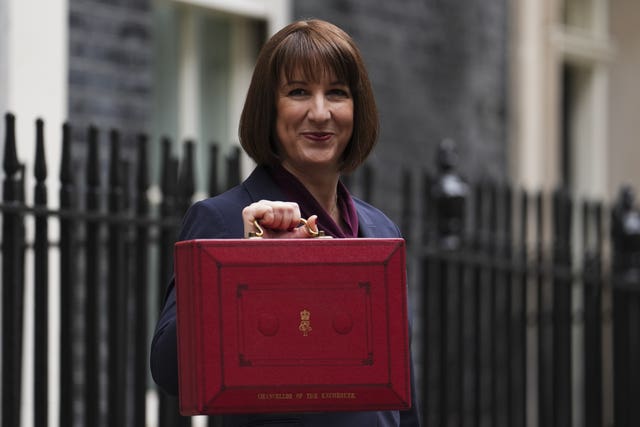Impact of inheritance tax on farmers slammed
DUP MP Carla Lockhart said farmers have been dealt ‘potentially a killer blow’.

Farmers have been dealt a “potentially killer blow” in the Budget, a DUP MP has claimed.
Chancellor Rachel Reeves announced a reform on inheritance taxes applied to farms during Wednesday’s Budget announcement.
She said from April 2026, the first £1 million of combined business and agricultural assets will continue to attract no inheritance tax.
But for assets over £1 million, inheritance tax will apply with 50% relief, at an effective rate of 20%.

She said family farms could be broken up if they are forced to sell land to pay the cost of passing the farm to the next generation.
“The threshold imposed by the Government will also be surpassed by many farms, leaving them facing a potentially significant tax bill,” she said.
“This will be the case right across the United Kingdom and it is inevitable that it will face very significant opposition within Parliament.
“Should the Government decide to continue with their policy, then there will also be a strong focus on why they have decided to set the threshold at a level that will impact many more farms than the number claimed by the Chancellor.”

“The significant changes to Agricultural Property Relief in the Budget is likely to force many family farms out of business that have been within the family structure for generations,” he said.
“This decision coupled with the resolution that the Northern Ireland farm support budget will no longer be ring-fenced, but instead be part of the Block Grant that DAERA will have to bid for is likely to cause farmers to go out of business and lead to significant increases in the cost of food in shops and supermarkets.
“The result will not only be bad for the farming community but also for food consumers and the public in general.”
“£1 million sounds like a lot of money, and it is, but with the Northern Ireland average farm size being 41 hectares (101 acres), if ground was valued at £12,000 per acre and a farmyard and house valued at £400,000, this would leave a tax bill of around £100,000, on top of the livestock and equipment values,” he said.
“Many farmers will be forced to sell ground to clear this new tax bill which will then also trigger possible capital gains tax to be paid on the level that ground may have increased in value since the time it was bought.
“The agricultural sector isn’t generally a cash rich business, most profits are usually reinvested in ground, yards or equipment to have a lasting legacy for future generations to keep on stewarding the land, caring for livestock and keeping us fed.”





